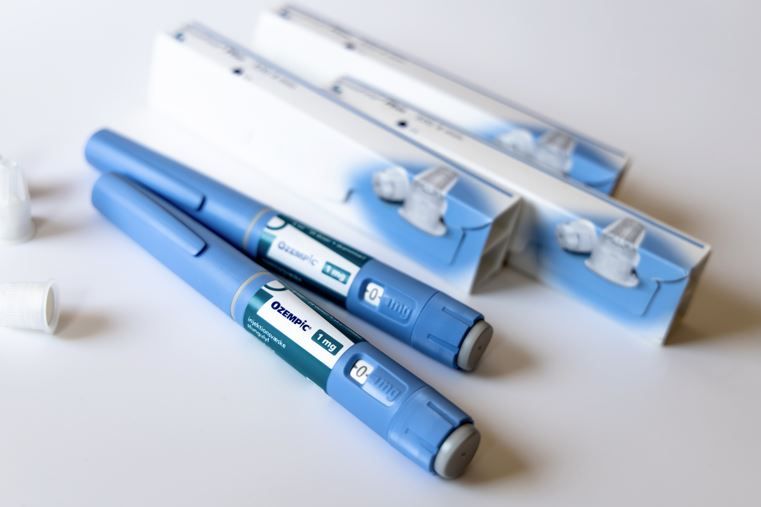- Clinical Technology
- Adult Immunization
- Hepatology
- Pediatric Immunization
- Screening
- Psychiatry
- Allergy
- Women's Health
- Cardiology
- Pediatrics
- Dermatology
- Endocrinology
- Pain Management
- Gastroenterology
- Infectious Disease
- Obesity Medicine
- Rheumatology
- Nephrology
- Neurology
- Pulmonology
WHO Issues Medical Product Alert for Counterfeit Semaglutide
Three falsified batches of semaglutide (Ozempic) are in circulation, posing risks for ineffective treatment due to incorrect dosing, contamination, and use of unknown ingredients, warned WHO.
The World Health Organization (WHO) has released a medical product alert1 regarding counterfeit semaglutide (Ozempic), a medication used to treat type 2 diabetes and obesity in various countries.
©Natalia/stock.adobe.com

This alert pertains to 3 counterfeit batches of semaglutide medicines, specifically the Ozempic brand, which were found in Brazil and the UK in October 2023, and the US in December 2023. All 3 batches went through the regulated supply chain but were not manufactured by Novo Nordisk. The WHO Global Surveillance and Monitoring System (GSMS) has noted a rise in reports of fake semaglutide products across all regions since 2022. This marks the first official notice from WHO following the confirmation of some of these reports.
WHO said it does not recognize lot number LP6F832, which was identified in Brazil, and that lot number MP5E511 is genuine but the product itself is falsified, as identified in the UK in German packaging. The organization also said that in the US, the combination of lot number NAR0074 and serial number 430834149057 does not align with actual manufacturing records.
In the case of patients unknowingly using these fake products, WHO is advising them to seek medical advice from a health care provider. Additionally, health care professionals should report any and all adverse events, lack of effectiveness, and suspected falsification to the National Regulatory Authorities/National Pharmacovigilance Centre.
“WHO advises health care professionals, regulatory authorities, and the public to be aware of these falsified batches of medicines,” said Yukiko Nakatani, MD, PhD, assistant director-general for essential medicines and health products at WHO, in a news release.2 “We call on stakeholders to stop any usage of suspicious medicines and report to relevant authorities."
How to identify a fake
There are 4 ways to identify these fake batches of semaglutide.1 First, check the lot and serial numbers on the box. If these numbers match with those in the alert, do not distribute, sell, or use these products. The box may also have spelling errors on the front, with one such error including a missing space between “1” and “pen” in the quantity found at the bottom. Looking at the pen itself, fake batches may have a scale that extends out from the pen when setting the dose, and the label may appear lower quality and not adhere well to the pen.
“The use of falsified Ozempic may result in the ineffective treatment of patients due to incorrect dosage, contamination with harmful substances, or use of unknown or substituted ingredients,” the alert said.1 “It may pose other serious risks to health because of its subcutaneous injection administration that could be life threatening.”
This is not the first time a warning has been issued about falsified semaglutide. In December 2023, the FDA alerted Americans about the combination of lot number NAR0074 and serial number 430834149057.3 The needles in these samples were counterfeit, raising concerns about their sterility and the increased risk of infection for patients using these products. Other identified counterfeit components include the pen label, health care professional and patient information, and the packaging carton.
The FDA noted 5 potential adverse effects that can result from using this specific false product: nausea, vomiting, diarrhea, abdominal pain, and constipation, although these effects are nonserious and consistent with those of authentic semaglutide. However, patients should remain cautious and avoid using this product as it could be life threatening due to the unknown contents.3
Following previous reports of patient harm, Lars Fruergaard Jørgensen, MSc, CEO of Novo Nordisk, announced in March that the company was working with authorities in several countries to combat counterfeit versions of the drug, which had been found in 16 countries at the time.4 Patients in Belgium, Iraq, Serbia, and Switzerland who took counterfeit medication in 2022 suffered from hyperglycemia, adding to previously confirmed cases in Austria, Lebanon, Britain, and the US.
Due to the surging demand and limited supply, there is a growing concern over unregulated and counterfeit medicines. Novo Nordisk and authorities are testing suspicious products in affected countries.
Note: This article originally appeared on our partner site, the American Journal of Managed Care.
